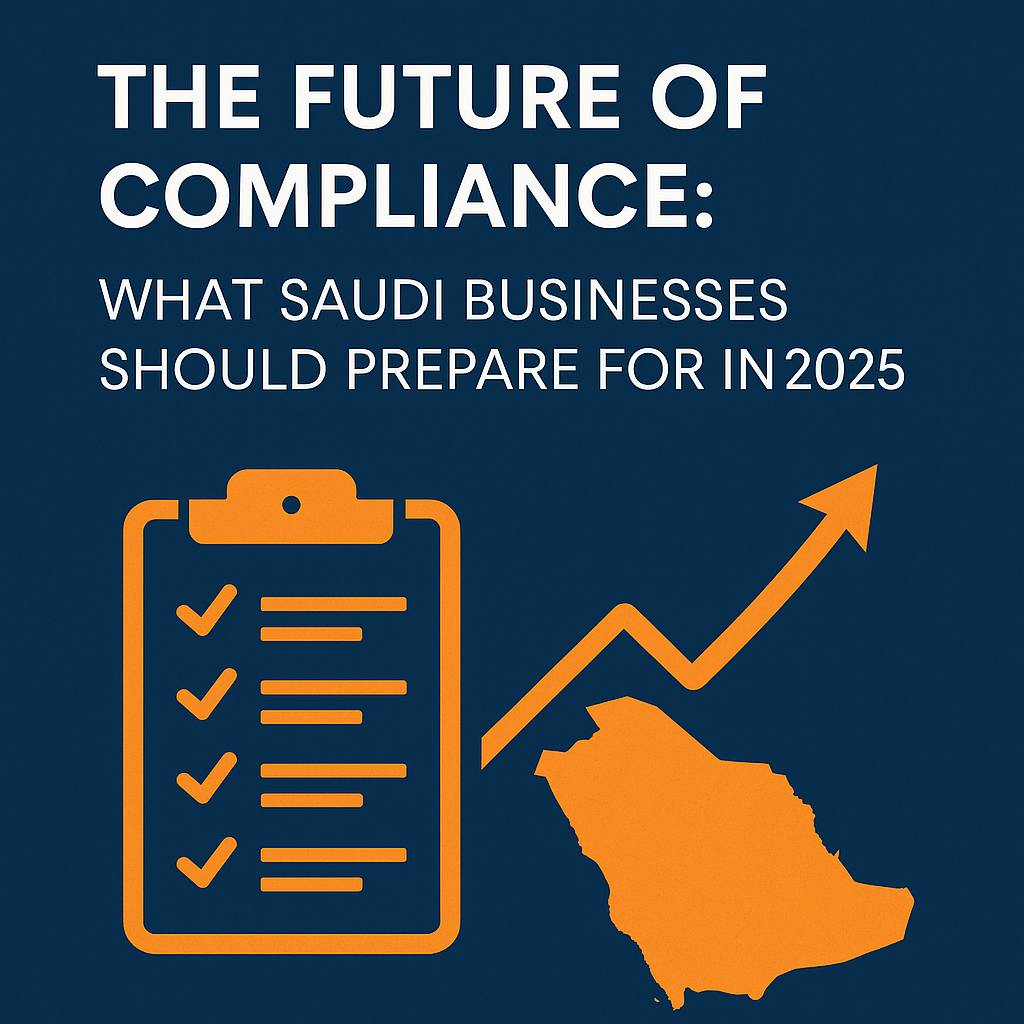
• Introduction
In today’s rapidly evolving business landscape, compliance trends in Saudi Arabia for 2025 are shifting faster than ever. As Vision 2030 accelerates economic diversification and regulatory modernization, Saudi businesses must adapt or risk falling behind. According to recent studies, 78% of Saudi companies believe new compliance frameworks will directly impact their operations by 2025.
This blog will explore how Saudi organizations can future-proof their compliance strategies, stay ahead of evolving GRC (Governance, Risk, Compliance) demands, and ensure long-term success.
• Defining the Key Concept
Compliance ensures that organizations adhere to laws, regulations, and internal policies. In Saudi Arabia, it involves aligning with Vision 2030 goals, Saudi Central Bank (SAMA) regulations, CMA guidelines, and new ESG (Environmental, Social, and Governance) standards.
In 2025, compliance will not just mean checking boxes—it will be about real-time governance, ethical leadership, AI-driven risk assessments, and proactive regulatory engagement.
• Market Relevance – Why This Matters for Saudi Businesses
Saudi Arabia’s market is undergoing transformational changes:
- Increased cross-border trade requires global compliance alignment.
- New cybersecurity frameworks by the National Cybersecurity Authority (NCA) demand stricter controls.
- ESG compliance is becoming a mandatory reporting area.
Businesses that adapt will gain competitive advantages such as:
- Investor trust
- Operational efficiency
- Faster regulatory approvals
Ignoring these trends could lead to heavy fines, reputation damage, and operational disruptions.
• Key Challenges for Saudi Companies
Saudi businesses must prepare to overcome several major compliance challenges in 2025:
- Constant regulatory changes: New updates in AML (Anti-Money Laundering), data protection, and corporate governance laws.
- Talent gaps: Shortage of qualified compliance professionals.
- Technology risks: Integration of AI and automation without adequate controls.
- Globalization: Navigating both local and international compliance standards.
• Solutions & Best Practices
How to prepare for the future of compliance:
- Adopt GRC Software: Use platforms like CG BOD’s GRC Solutions for real-time risk management.
- Upskill your workforce: Invest in compliance certifications and AI training.
- Embrace technology: Implement AI-driven audits, automated reporting, and predictive risk analytics.
- Develop ESG frameworks: Prepare sustainability disclosures aligned with international standards.
- Stay proactive: Regularly audit internal systems and update compliance protocols.
• Case Studies & Real-World Examples
- Saudi Aramco integrated AI-driven compliance tools to manage thousands of regulatory requirements efficiently.
- STC Group launched a dynamic governance framework aligning cybersecurity compliance with Vision 2030.
- Al Rajhi Bank implemented real-time GRC monitoring to reduce regulatory incidents by 30% in just one year.
These examples show that investment in future-ready compliance systems pays significant dividends.
• Conclusion
The future of compliance for Saudi businesses is dynamic, technology-driven, and non-negotiable. Companies must proactively strengthen their GRC frameworks, invest in technology, and prepare for a stricter regulatory environment in 2025 and beyond.
Failure to adapt could put your business at risk—while early action can secure a leadership position in Saudi Arabia’s evolving market.
